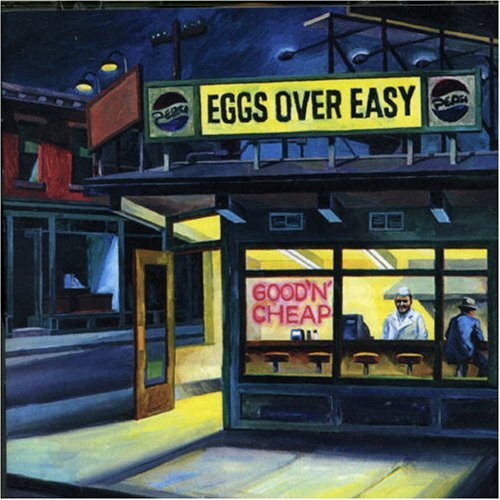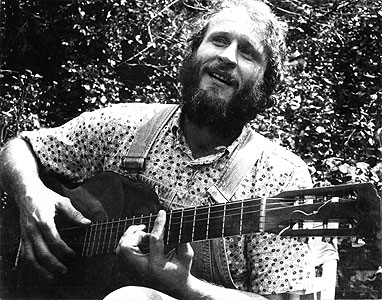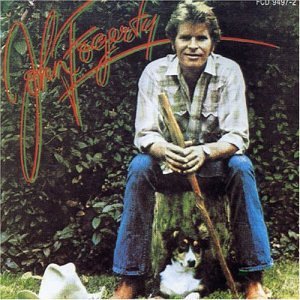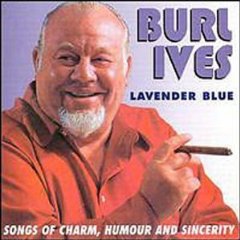The new Mudcrutch album is not the album they would have made in the early ’70s if they had not broken up, but it’s fun to think about it as if it were. Despite its appearance in the celebration of California Day, I’d like to think of it more as a Florida Day kind of album, with a distinct period vibe.
All that makes this album unique is disguised by the choice of the first single off the album, “Scare Easy”. Probably chosen so as not to scare off any of Tom Petty’s fans, this track sounds like it could have been on any of his albums from the last 30 years. As Ed mentioned, it has the “won’t back down” stance, and a very familiar chugging rhythm. It’s not a bad track at all. Au contraire, as they say in Florida. It’s just that it’s not representative of the album as a whole.
Petty’s Byrds influence was apparent from the very first, and it’s there on this album as well. But here we have the Gram Parsons and Clarence White versions of the band to thank, rather than the Feel a Whole Lot Better Byrds. Mudcrutch even covers “Lover of the Bayou” here, a McGuinn/Jacques Levy song from the Byrds’ Untitled album. And with Mike Campbell and Tom Leadon on guitars here, there’s a hell of a lot of guitar picking going on, and the sound often invokes Clarence White’s Telecaster.
However much we think of the Byrds as a California band, most of its members were not from the area. Only Crosby and Hillman were natives. McGuinn was from Chicago, and Gene Clark was from Missouri. And you know where Gram Parsons was from? Florida. He may have felt that Joshua Tree was his spiritual home, but he grew up in Winter Haven, Florida (and also Waycross Georgia). Parsons is definitely a presence on this album, and there are some his quasi-shitkicker style songs here. They also cover the trucker anthem “Six Days on the Road”, which the Burritos also covered.
Lots of people played that one back in the day. I think I first heard it from Taj Mahal. And this album opens with “Shady Grove”, one of those folk songs that was knocked around by lots of bands. It’s on one of those Garcia/Grisman collaborations, but the version here is probably most influenced by the one that was done by the edition of Quicksilver Messenger Service that featured Nicky Hopkins. Very ’70s. I read in an interview that Mudcrutch actually used to play this one way back when.
“This Is a Good Street”
This album also reminds me that, when Mudcrutch first went out west, they were signed to Denny Cordell’s Shelter Records, and if I remember correctly Petty and the Heartbreakers did some time in Shelter’s Oklahoma studio. Here and there – mostly “This Is a Good Street” and “The Wrong Thing to Do” – this reminds me strongly of another Shelter artist, Dwight Twilley. The same mixture of twang and British beat, but with strikingly different idiosyncratic lead singers.
“Bootleg Flyer”
Another thing that might surprise you if you were expecting a Heartbreakers album instead of a period piece is the jamminess. As I said before there’s a lot of guitar playing, and on the 9:28 long “Crystal River” there’s a LOT of guitar playing – solos with space echo, wah-wah pedal, even phasing. It’s one of those dreamy extended workouts like “Mountain Dew” or “Mountain Jam”. Remember that in the world of the original Mudcrutch, the Allmans would have been a major presence, and there’s even a nod to them on this album’s “Bootleg Flyer”, a dual-guitar lead passage that’s so obvious it will make you smile.
In general the playing here is great. I’m sure Petty is glad he gave up the bass for the rhythm guitar/frontman role, but I bet he’s having a blast playing bass like he used to. Benmont Tench does his thing of never calling attention to himself, but when you do pay attention to what he’s doing you realize how great he is. If you were worried about whether drummer Randall Marsh, who doesn’t have much on his resume besides Code Blue (an L.A. band he was in with former Motel Dean Chamberlain and Gary Tibbs of the Vibrators/Roxy Music), don’t. He sounds fine. Sometimes you recognize Mike Campbell’s licks, but in general you can’t tell if he’s playing or if Tom Leadon is.
The reason Mudcrutch headed to L.A. in the first place was that Tom’s big brother Bernie was doing so well with the Eagles, perhaps the stereotypical L.A. band, none of whose members were actually from L.A. Beside Leadon, Meisner was from Nebraska, Henley Texas, and Frey Michigan, but I guess that’s one of the truisms about L.A., that no one is from there. (And here’s a bit of trivia I found when fact checking that last bit: according to Wikipedia, Frey, in his pre-alpha douche days, played on RTH icon Bob Seger’s “Ramblin’ Gamblin’ Man”.)
So I’m not saying anyone will mistake the Mudcrutch album for a Marshall Tucker Band album, and I’m not even saying that Petty is exploring his southern roots on this album. But maybe the sounds here crystallize the southern basis of Petty’s music that was there all along.








